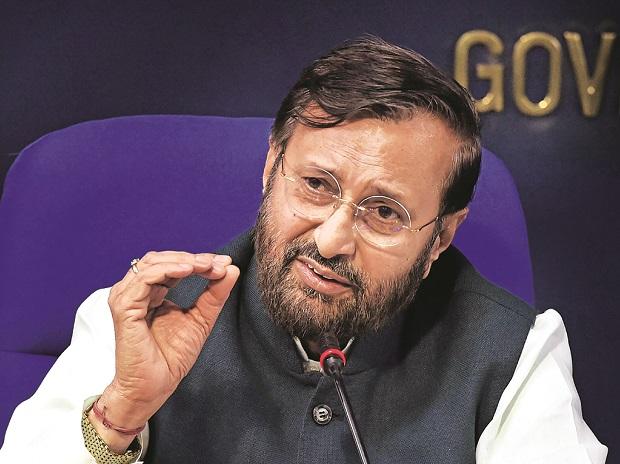NEW DELHI : Delhi and the neighbouring states of Haryana, Punjab, UP and Rajasthan, which get covered by thick pollution due to stubble burning every year, will this year use a new technology developed by Pusa Agriculture Institute to decompose straw in the fields, Union Environment Minister Prakash Javadekar said on Thursday.
He was addressing the media after holding a virtual meeting with environment ministers of Delhi and the four neighbouring states to check their preparedness and take preventive measures ahead of the crop residue burning.
Javadekar said though stubble burning has reduced in the last three years, more needs to be done to tackle the issue.
He said during the meeting, which was also attended by Central Pollution Control Board (CPCB), state pollution control boards, DDA and NDMC, that six meetings have already been held to discuss the issue and central government has taken several measures for the same.
After chairing the over one-hour-long meeting with the states, Javadekar said that all the five states gave details of their action plans and Delhi has been asked to focus on its 13 pollution hotspots and any incomplete road work must be completed to avoid dust.
He said there are several factors other than stubble burning which cause pollution in the national capital, including garbage burning, dust and unpaved roads.
“Hotspots have been prepared. The central government has given machines to destroy crop residue. ICAR and Pusa’s decomposer technology will be tried in states this year on trial basis.
“We are also encouraging the use of Bio CNG and bio-power. BS-VI compliant vehicles have been introduced. Measures have been taken but more needs to be done,” he said.
The IARI has developed PUSA Decomposer, which is a set of four tablets made by extracting fungi strains that help the paddy straw to decompose at a much faster rate than usual, giving farmers the option to shred the straw, spray a solution containing the fungal strains, and mix it with the soil for decomposition.
The Indian Agricultural Research Institute (IARI) is administered by Indian Council of Agricultural Research (ICAR).
Javadekar also said that awareness was being spread among states where there is more stubble burning.
“States were told that in COVID-19 days, as lungs are already affected by pollution, it can pose more danger for everyone. Where there is more stubble burning, like Punjab, awareness among farmers is being spread,” he said. (AGENCIES)
Trending Now
E-Paper


